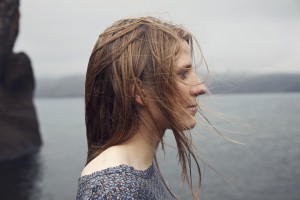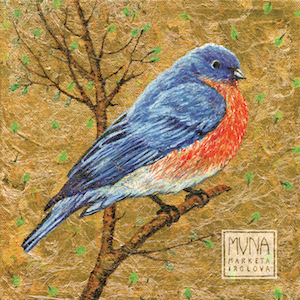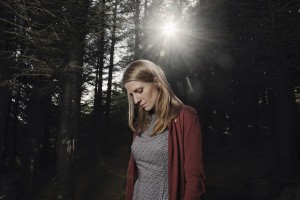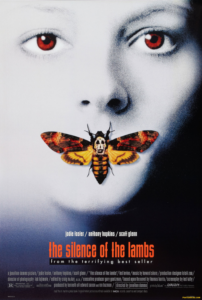
Markéta Irglová is known best for her work with the band, The Swell Season with Glen Hansard. The two also starred in the film “Once”, which these also took home the Oscar for Best Song from the film. Markéta released her first solo album “Anar” in 2011. Her latest solo album “Muna” is a continuation of that album. Media Mikes had a chance to chat with Markéta about the album and her music.
Mike Gencarelli: Tell us about where you pulled your inspiration for your latest solo album “Muna”?
Markéta Irglová: I usually draw inspiration for my work based on experience and what is going on in my life in terms of what resonates. I find that I am not able to write about something that I can’t connect with from an emotional place. So it ends up being things that I am drawn to at that time. It could be things that I am reading or stories that I heard. At the time for “Muna”, I was having an introspective journey and asking myself a lot of questions about life in general. In the past, I would have written songs about relationships because that was how I was learning to relate to the world. This album was a lot about widening my relationship with the world and looking for my own sense of spirituality and outlook on life. In that searching, I came across a lot of material that actually helped me in my own life as well.
MG: How did you come up with the title “Muna”? (Icelandic for “remember”)
MI: For me this is part two of a trilogy of records, which “Anar” was the first. When I finished making “Anar”, I knew that it had to be the first of these three records. It would be connected to the others and be a continuation and extension of each other. I wanted there to be a synchronicity between these three records. I wanted each record to also have a title of one word and consisting of four letters. When I was recording “Muna” in Iceland, I was wondering what it would be called and I was looking for a word. I was thinking that remembering is sort of a theme for this record. The idea of remembering something that you forgot a long time ago and trying to chase that memory again. So I asked my engineer/producer, “How do you say remember in Icelandic?” He said “Muna” and I said “Perfect, that is the title”.
MG: Can you compare your recording experiences of “Anar” and “Muna”?
MI: I recorded “Anar” in Chicago and I didn’t have a huge budget for it. I liked the idea though of keeping it simple anyway. I wanted to go in for a couple of weeks and have the recording sessions with local musicians and my friend Aida (Shahghasemi), who I have been playing with at the time. I originally went in to record an EP and ended up having way more material than I needed for an EP, so it turned into a whole  record. When I was making “Muna”, I wanted to build on the experience of “Anar” and wanted to have a more lush sound with string arrangements. At the time when I was looking for a studio, I was recommend to a recording studio in Iceland. I knew it was a long way to travel but we decided to do it. Again a lot of local musicians got involved and it developed a more structured lush sound for this album.
record. When I was making “Muna”, I wanted to build on the experience of “Anar” and wanted to have a more lush sound with string arrangements. At the time when I was looking for a studio, I was recommend to a recording studio in Iceland. I knew it was a long way to travel but we decided to do it. Again a lot of local musicians got involved and it developed a more structured lush sound for this album.
MG: The album has religion overtones throughout, especially including part of “The Lord’s Prayer” in the track “Without a Map”; tell us about spiritual influence for this album?
MI: Yeah, I was reading a trilogy of books called “Conversations with God” by Neale Donald Walsch. It happened by accident really, I was visiting a friend of mine and while she was making me some tea, I was going through her books and I just came across these books. I didn’t understand how someone could be having a conversation with God. Was he actually having talks with God or did he make it all up? I didn’t know the answer but I liked what I was reading and ended up getting stuck into these books. At the same time, I was allowing myself to ask all these questions as well. So that was one of the main influences for me. There is also a musical called “Jesus Christ Superstar” by Andrew Lloyd Webber and Tim Rice, which is something that I saw when I was four years old. It really inspired my entire musical journey through my life and even now it still resonates with me with the songs and performances. It is a musical, so the story is told with song and there is this sort of call and answer between them. I think my approach to song writing is very similar. I have these conversations within these songs, I ask questions and answer them through the music. I ended up reaching through myself and finding out answers to questions that I realized that I already knew the answers to.
MG: “The Leading Bird” is easily one of my favorite tracks on the album; can you talk a little bit about how it was born?
MI: “The Leading Bird”, I actually co-wrote with my friend Aida. She is a friend of mine that I met when I moved to New York. She is a daf percussionist, which is like a Persian drum. She is also a vocalist. She first wrote a poem and then was writing music to it and she told me she was having an issue finishing it. She asked if she could play it for me and maybe I could help her. She played me this idea which was the verse and the bridge of what became “The Leading Bird”. She didn’t know where to take it. We forgot about it for some time and was both working on other things. I was writing this piece a while later on the piano, which I was really liking. It would become the cord progression of the chorus for “The Leading Bird”. When working on it, it occurred to me that it was perfect for Aida’s song. I thought if we joined these two songs together it would be perfect. When I saw her again, we joined the melodies together and put her lyrics over my parts and it was like it was always meant to be. It was a really incredible experience and I have never written a song like that before in my life. It was very inspiring to have this song born in this way.

MG: My other favorite is “This Right Here”; any story behind this one?
MI: “This Right Here” is a very traditional love song with piano and vocal. It was actually written, the entire thing, music and lyrics within one afternoon. I had just sat at the piano and the song just appeared to me. That doesn’t happen very often. Usually an idea will appear and then I put a lot of effort in in order to crystalize the lyrics and music. But this song just kind of appeared, finished in a way. I don’t know how but it did [laughs].
MG: Was there any plan to the order of the songs on the album?
MI: Yeah, I spent a lot of time trying to figure out how to approach the track list. Mio (Thorisson), my partner, and I had been doing a lot of the post production on the album ourselves. We would burn CDs and listen to them in the car when we went on drives. We would then go back and fix different parts. We also burned them with the tracks in different order. Over the course of listening to these songs together and in different environments, it started to become really clear as how they should be arranged to showcase the gradual growth of the record over the 50 minutes.
MG: Tell us about your upcoming North America and Europe tour?
MI: It is going to be five of us on stage. Aida, who plays the daf and sings with me. Rob Bochnik and Joe Doyle are the bass player and guitar player, who were also part of The Swell Season and also in The Frames. The four of us have done some shows together before when we went to Asia last summer and it worked out really well. I am really excited that they are in for this tour. Also Rosi Golan, a Brooklyn-based singer/songwriter is joining us as a support act and also will be on stage for our set as a vocalist as well. So it is going to be a lot of fun.

